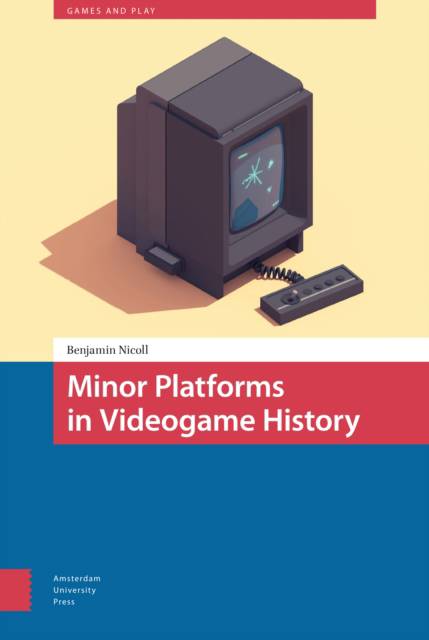
- Afhalen na 1 uur in een winkel met voorraad
- Gratis thuislevering in België vanaf € 30
- Ruim aanbod met 7 miljoen producten
- Afhalen na 1 uur in een winkel met voorraad
- Gratis thuislevering in België vanaf € 30
- Ruim aanbod met 7 miljoen producten
Zoeken
€ 155,45
+ 310 punten
Omschrijving
Videogame history is not just a history of one successful technology replacing the next. It is also a history of platforms and communities that never quite made it; that struggled to make their voices heard; that aggravated against the conventions of the day; and that never enjoyed the commercial success or recognition of their major counterparts. In Minor Platforms in Videogame History, Benjamin Nicoll argues that 'minor' videogame histories are anything but insignificant. Through an analysis of transitional, decolonial, imaginary, residual, and minor videogame platforms, Nicoll highlights moments of difference and discontinuity in videogame history. From the domestication of vector graphics in the early years of videogame consoles to the 'cloning' of Japanese computer games in South Korea in the 1980s, this book explores case studies that challenge taken-for-granted approaches to videogames, platforms, and their histories.
Specificaties
Betrokkenen
- Auteur(s):
- Uitgeverij:
Inhoud
- Aantal bladzijden:
- 212
- Taal:
- Engels
- Reeks:
Eigenschappen
- Productcode (EAN):
- 9789462988286
- Verschijningsdatum:
- 16/09/2019
- Uitvoering:
- Hardcover
- Formaat:
- Genaaid
- Afmetingen:
- 160 mm x 236 mm
- Gewicht:
- 453 g

Alleen bij Standaard Boekhandel
+ 310 punten op je klantenkaart van Standaard Boekhandel
Beoordelingen
We publiceren alleen reviews die voldoen aan de voorwaarden voor reviews. Bekijk onze voorwaarden voor reviews.











